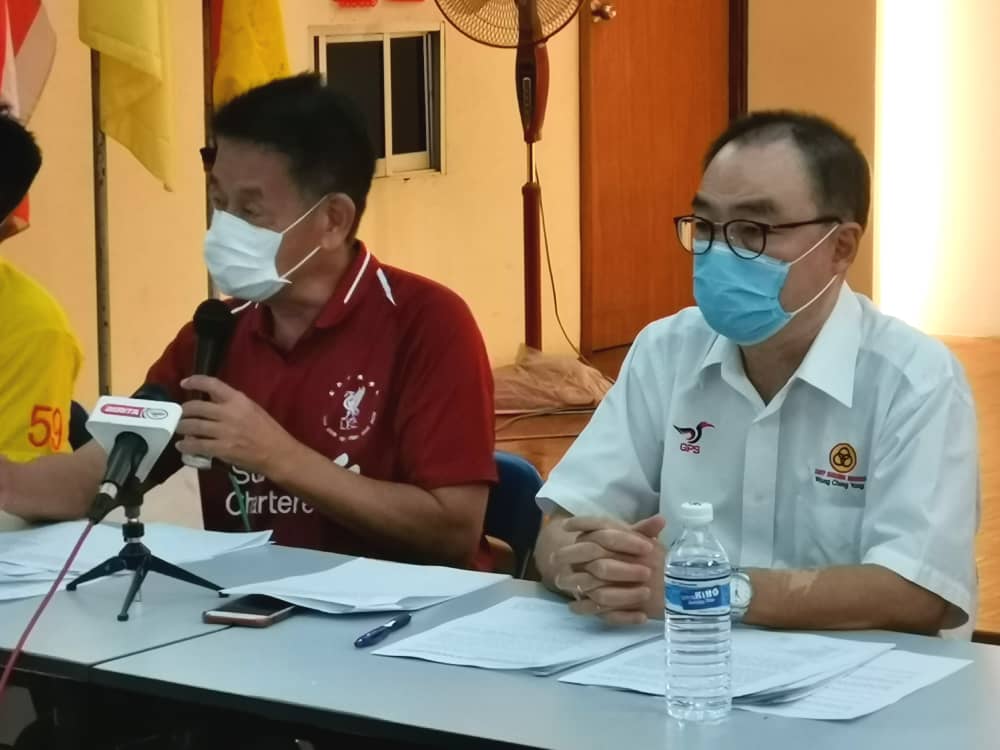KUALA LUMPUR, July 22 — The Malaysian Medical Council (MMC) should conduct elections to choose all 33 council members as only one seat is reserved for Sarawak, an SUPP representative said today.
Meradong assemblyman Ding Kuong Hiing also insisted that the MMC member seats be distributed evenly without any partiality to be fair to medical practitioners in East Malaysia.
“The Health Director General must not necessarily be the President of MMC,” said Ding, who is also SUPP Education Bureau chairman, in a statement on Sarawak Day, also known as Sarawak Independence Day.
Currently, the MMC consists of nine members from local medical schools and six private and public medical practitioners — all of whom are appointed by the health minister. This means that out of 33 council member seats, the minister is allowed to choose 15 members using his or her discretion.
One seat has been allocated for the Health director general, while 15 members from Peninsular Malaysia are voted in an election. The balance two council member seats have been allocated to one member from Sabah and Sarawak each respectively.
“MMC has much to learn from the Malaysian Bar Council, Sarawak Advocates Association and Sabah Law Society, which always practice democracy in electing the heads of the respective legal councils,” Ding said.
He also proposed forming a Sarawak Medical Council (SMC), a separate body to register and regulate medical practice in Sarawak in order to protect the state’s medical professionals from discrimination.
“Sarawak medical autonomy is the solution to solve the discrimination by the Ministry of Health (MOH), Public Service Department (JPA) and the Malaysian Medical Council (MMC) against Sabahans and Sarawakians,” he added.
“SMC will operate independently from the nationwide MMC.
“The most important reason to form SMC is to ensure that Sarawakian doctors are being treated fairly and any appeal to the KL side to train more specialists for Sarawak Hospitals will not fall onto deaf ears,” he mentioned.
Sarawak Local Government and Housing Minister Dr Sim Kui Hian told CodeBlue recently that Sarawak should have its own medical council separate from the federal MMC.
According to Ding, from December 2019 to February 2020, MOH and JPA created 100 permanent medical officer (MO) posts for Sarawak hospitals. However, less than 10 per cent of these permanent posts were offered to Sarawak MOs on contract.
“30 MOs from West Malaysia who were offered permanent posts refused to serve in Sarawak and these 30 permanent posts were not offered to Sarawak MOs. Instead, they were offered subsequently to MOs from West Malaysia. This is a gross travesty of justice experienced by Sarawak MOs,” he added.
In mid-April, the MOH extended the contracts of government doctors, pharmacists, and dentists by six months whose service ended late last year or is due for termination this year.
Health Minister Dr Adham Baba announced that the contract renewals were for 1,139 pharmacy officers on the UF41 civil service grade, 852 UG41 dental officers, and 79 UD41 medical officers.
“To the best of our knowledge, 10 MOs were offered to work in Sarawak hospitals. However, only four Sarawakian MOs reported for duty while the other six MOs from West Malaysia did not report for duty in any Sarawak hospital,” Ding told.
“For doctors from West Malaysia, Sarawak is not their home. Only Sarawak MOs will serve Sarawak permanently.”
He also pointed out the need for more specialists in public hospitals in Sibu, Bintulu and Miri.
“At the moment, Sarawak General Hospital (SGH) in Kuching is the only public hospital in Sarawak with sub-specialists. Sibu Hospital caters for the Rejang River Basin with an estimated population of 500,000 but it does not have enough specialists in neurology, obstetrics and gynaecology etc.”
It is to be noted that, seven west coast states from north to south peninsular Malaysia had two to 18 times more specialists compared to Sarawak, and between three and 33 times more than Sabah, across the anaesthesiology, surgery, orthopaedic surgery, medicine, paediatrics, and obstetrics and gynaecology departments, based on 2010 data from the Clinical Research Centre.








